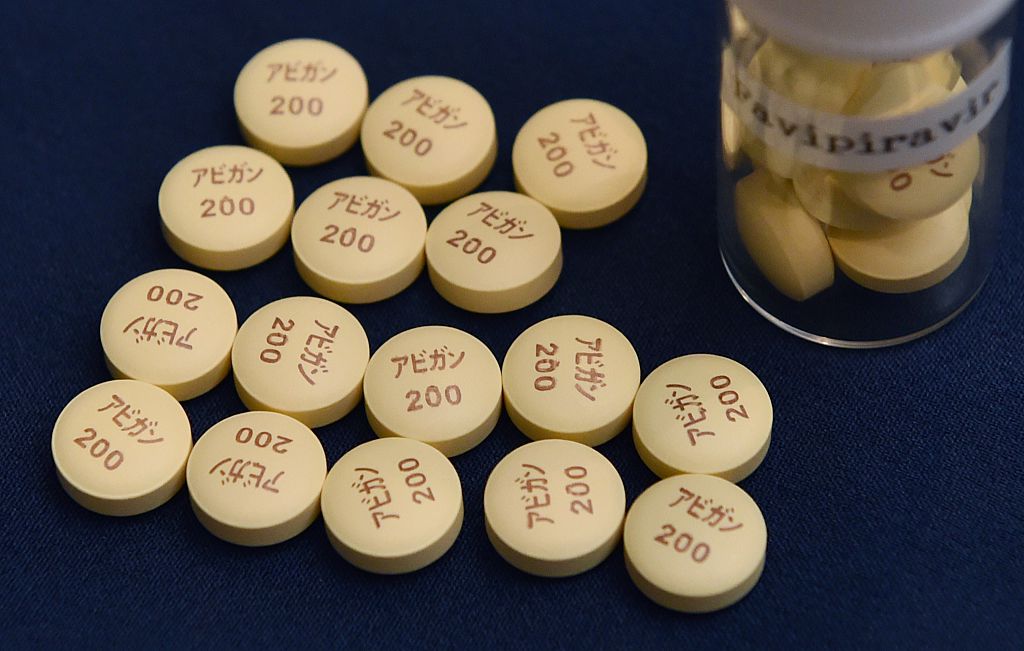A Japanese flu drug appears to be effective at combatting coronavirus, Chinese studies show


A free daily email with the biggest news stories of the day – and the best features from TheWeek.com
You are now subscribed
Your newsletter sign-up was successful
Scientists are working around the clock and around the globe to come up with remedies for the novel coronavirus, and, believe it or not, there's been some good news so far.
Chinese medical authorities, for example, have said a Japanese drug called favipiravir, which is normally used to treat new strains of the flu, is "clearly effective" in treating COVID-19 patients, The Guardian reports. And while it would still need government approval for full-scale use, it also has a high degree of safety because it's already been used to treat flu patients. Approval could reportedly happen as early as May, per The Guardian, though that's mostly speculation.
The Chinese studies, which tested 340 COVID-19 patients, have shown patients turned negative for the virus after a median of four days compared to 11 for those who were not administered the drug, and X-rays confirmed lung condition improvements in 91 percent of those who received it versus 62 percent of those who didn't.
The Week
Escape your echo chamber. Get the facts behind the news, plus analysis from multiple perspectives.

Sign up for The Week's Free Newsletters
From our morning news briefing to a weekly Good News Newsletter, get the best of The Week delivered directly to your inbox.
From our morning news briefing to a weekly Good News Newsletter, get the best of The Week delivered directly to your inbox.
Of course, favipiravir would be a treatment and not a cure, and Japanese clinical trials have so far found that the drug's effectiveness is not as strong in patients with more severe symptoms.
It's not the only positive development, either. Another study from China found that three macaque monkeys didn't develop a second COVID-19 infection after recovering from their initial exposure, which suggests people may build up immunity after infection, and also provides some hope for research groups looking to use plasma from recovered patients as a treatment for the disease.
Beyond that, companies worldwide are racing to develop faster tests and vaccines, with some clinical trials ready to begin. Read more at The Guardian and The Scientist.
A free daily email with the biggest news stories of the day – and the best features from TheWeek.com
Tim is a staff writer at The Week and has contributed to Bedford and Bowery and The New York Transatlantic. He is a graduate of Occidental College and NYU's journalism school. Tim enjoys writing about baseball, Europe, and extinct megafauna. He lives in New York City.
-
 The 8 best TV shows of the 1960s
The 8 best TV shows of the 1960sThe standout shows of this decade take viewers from outer space to the Wild West
-
 Microdramas are booming
Microdramas are boomingUnder the radar Scroll to watch a whole movie
-
 The Olympic timekeepers keeping the Games on track
The Olympic timekeepers keeping the Games on trackUnder the Radar Swiss watchmaking giant Omega has been at the finish line of every Olympic Games for nearly 100 years
-
 Nobody seems surprised Wagner's Prigozhin died under suspicious circumstances
Nobody seems surprised Wagner's Prigozhin died under suspicious circumstancesSpeed Read
-
 Western mountain climbers allegedly left Pakistani porter to die on K2
Western mountain climbers allegedly left Pakistani porter to die on K2Speed Read
-
 'Circular saw blades' divide controversial Rio Grande buoys installed by Texas governor
'Circular saw blades' divide controversial Rio Grande buoys installed by Texas governorSpeed Read
-
 Los Angeles city workers stage 1-day walkout over labor conditions
Los Angeles city workers stage 1-day walkout over labor conditionsSpeed Read
-
 Mega Millions jackpot climbs to an estimated $1.55 billion
Mega Millions jackpot climbs to an estimated $1.55 billionSpeed Read
-
 Bangladesh dealing with worst dengue fever outbreak on record
Bangladesh dealing with worst dengue fever outbreak on recordSpeed Read
-
 Glacial outburst flooding in Juneau destroys homes
Glacial outburst flooding in Juneau destroys homesSpeed Read
-
 Scotland seeking 'monster hunters' to search for fabled Loch Ness creature
Scotland seeking 'monster hunters' to search for fabled Loch Ness creatureSpeed Read
